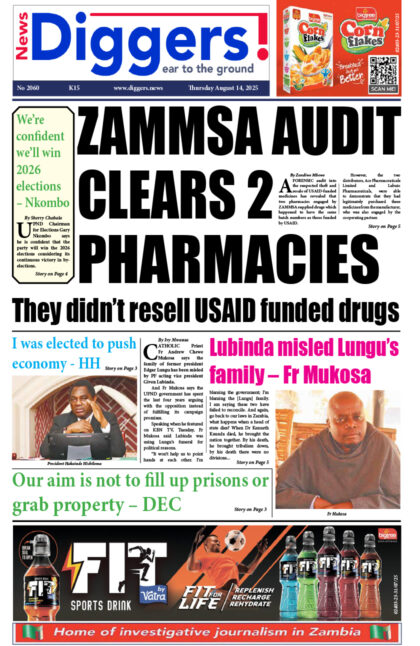Illegal fuel dumping and adulteration in Zambia is costing government an estimated US $81 million in lost revenues per annum, according to the Energy Regulation Board (ERB).
In a statement, ERB executive director Langiwe Lungu stated that through the ongoing Fuel Marking programme, the regulator has established that there has been rampant illegal fuel dumping and adulteration in the country, which when curtailed, could translate to about US $81 million in revenue to government per annum.
“Through the ongoing Fuel Marking programme, the ERB has established that there has been rampant illegal fuel dumping and/or adulteration in Zambia, which when curtailed, could translate to about US $81 million in revenue to government per annum,” Lungu stated in a press release availed, Tuesday.
She stated that results of a baseline sampling and testing of the petroleum supply chain revealed that there is a high level of fiscal tax avoidance through dilution of domestic products with unmarked products and kerosene, among others.
“Having sufficiently penetrated the market the fuel marker since February, 2018, the ERB is now embarking on enforcement action as a matter of urgency, particularly in the North to South corridor, where the vice is most prevalent. Results of baseline sampling and testing of the petroleum supply chain have revealed that the fuel marker has penetrated the market throughout the country to allow for enforcement to start. The key results of the sampling and testing were as follows: there is a high level of fiscal tax avoidance of domestic products with unmarked products and kerosene,” Lungu revealed.
“The incremental tax revenues that would result following successful enforcement of a sustained fuel marking programme in Zambia is estimated to be about US $81 million per year.”
She added that the ERB will now conduct continuous impromptu sampling and testing of fuels at all filling stations as part of its enforcement action.
“In view of these findings, the ERB shall not only take enforcement action, but also conduct impromptu sampling and testing of fuels at all filling stations, bulk fuel storage facilities belonging to the Oil Marketing Companies (OMCs); in-country fuel tankers; and all other bulk storage and retail facilities for own consumption. That includes the mines and allied industries, construction; transport and logistics, commerce and the agricultural sector,” she cautioned.
“Further, all those conducting illegal activities in the petroleum subsector are hereby warned that the ERB, working with the Zambia Revenue Authority (ZRA); Zambia Environmental Management Agency (ZEMA); Drug Enforcement Commission (DEC); and Zambia Police (ZP) will deal firmly with perpetrators. This is necessary to ensure that the quality of fuel in Zambia is guaranteed and that maximum revenue is realised from fuel sales in the country.”
According to Lungu, the ERB commenced marking of fuel in Zambia for domestic consumption of February 15, 2018, following promulgation of the Statutory Instrument (SI): “Energy Regulation (Fuel Marking and Monitoring) regulations 69 of 2017.”
Fuel marking primarily seeks to curb dumping of transit fuel and/or smuggling and adulteration of fuel with cheaper products, such as kerosene.
Fuel uplifted for the domestic market from all government depots and selected OMC depots is marked with a biochemical substance in small quantities, which acts as a stamp or “finger print” in line with the SI 69.
Under the Fuel Marking SI, the ERB can take stern action against illegal dealers with imposition of fines of around K30,000 or imprisonment, upon conviction, for a period not exceeding two years or both, among other draconian penalties.
























